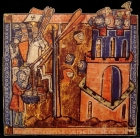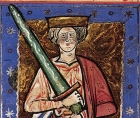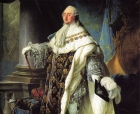Effective Department
As a subject leader, building an effective department can be daunting. Even for an experienced subject leader, there are many considerations to make depending upon the nature of the school, the staff and resources that you are able to use. An effective department will be one that shares and reflects, researches and acts upon it. One that sees the bigger picture, shares a vision and plans for it. One that seeks learning and development and shares it. Based upon teacher and history education research, Teaching History journal plays a vital role in the development of any history department. In this section, you will find research articles and resources to support the pedagogy of an effective department as well as resources and research aimed at building and becoming an effective department.
-

Nurturing aspirations for Oxbridge
ArticleClick to view -

Low-stakes testing
ArticleClick to view -

Tracking the health of history in England’s secondary schools
ArticleClick to view -

The Harkness Method: achieving higher-order thinking with sixth-form
ArticleClick to view -

Move Me On 159: Writing Frames
ArticleClick to view -

Assessment after levels
ArticleClick to view -

Building meaningful models of progression
ArticleClick to view -

How history teachers can support their own and others' continued professional learning
ArticleClick to view -

What Does the English Baccalaureate mean for me?
ArticleClick to view -

Professional wrestling in the history department: a case study in planning the teaching of the British Empire at key stage 3
ArticleClick to view -

Engaging with each other: how interactions between teachers inform professional practice
ArticleClick to view

